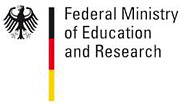CNS 2009 Symposium on NeuroinformaticsData Sharing and Data Analysis in NeurophysiologyThe day following the main meeting (Wednesday, July 22nd) features a special symposium on the Neuroinformatics theme of CNS 2009 organized by by Andreas Herz (LMU Munich), Martin Nawrot (FU Berlin) and Thomas Wachtler (LMU Munich) This symposium will take place in the 150 seat Einstein lecture hall in the Berlin-Brandenburg Academy of Sciences. Attendance is open to all holding a workshop registration. The global scale of neuroinformatics offers unprecedented opportunities for scientific collaborations between and among experimental and theoretical neuroscientists. To fully harvest these possibilities, coordinated activities are required that support neuroscientific research by improving key ingredients – data access, data storage and exchange, and data analysis. This symposium, organized by the German National Node of the International Neuroinformatics Coordination Facility (INCF), brings together experts in the area of data sharing and data analysis in neurophysiology, who will present specific approaches and tools that have also fostered their own scientific research. The symposium will be held on July 22 and will feature full-length talks by the main speakers, followed by discussions. Please note that attendants (including presenters) must register in the workshop category, and that early registration at reduced rates ends on May 15th. Workshop registrants are free to attend their selection of symposium or workshops. One topic area addressed by the speakers will be the development of open-source tools for data analysis. Ad Aertsen (BCCN Freiburg) will talk about FIND, an integrated analysis toolbox for multiple-neuron recordings and network simulations. Jan Benda (BCCN Munich) will address the issues of automated data and metadata acquisition and online analysis, introducing the software relacs. Hemant Bokil (Cold Spring Harbor Laboratory) will present the Chronux software package for the analysis of neural data, and Eilif Muller (EPFL) will talk about efforts to develop Python modules for neuroscience and neuroinformatics. Such data analysis tools are also being integrated into larger frameworks for the management and sharing of tools and data among neuroscientists. In recent years, several initiatives have been established to develop such integrative platforms. One of them is the project “Code Analysis, Repository and Modeling for e-Neuroscience”, CARMEN, a UK-wide initiative to develop a virtual laboratory for neurophysiology, which will be introduced by Colin Ingram (University of Newcastle). Fritz Sommer (UC Berkeley) will present the data sharing efforts of the Collaborative Research in Computational Neuroscience (CRCNS) funding program in the US. Shiro Usui will introduce the Japan National Neuroinformatics Node, and in particular its digital archive for vision science, the Visiome Platform. These presentations will clearly show that the way we gather, analyze and distribute experimental data is undergoing major changes. We therefore expect lively discussions about the current scope and future development of tools for data sharing and data analysis in neurophysiology. The German National Neuroinformatics Node is funded by the Federal Ministry of Education and Research (BMBF), located at Ludwig-Maximilians-Universität Munich, and an integral component of the Bernstein Network for Computational Neuroscience (NNCN).
|


